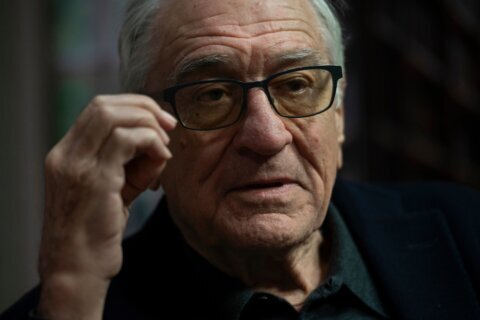Magical Realism remains cinema’s most fascinating and rewarding subgenre, exploring all of the supernatural elements of fantasy, but grounding it all in tangible, relatable scenarios.
Japanese cinema fans will remember Hirokazu Koreeda’s “After Life” (1998) where people on their death bed had a week to choose only one memory to keep for all eternity.
Now, we explore the inverse of “before life” in Edson Oda’s existential indie “Nine Days,” which premiered at Sundance and is released by Sony Pictures Classics this Friday.
The film is set in a sort of pre-life purgatory where a reclusive man, Will (Winston Duke), lives alone in a beach house. Here, he conducts a series of interviews with human souls for a chance to be born into the real world. In his spare time, he watches a wall of TV sets that show the full lives of past souls that he has hand-picked to move on to the next plane.
It’s an intimate showcase for Duke, who showed macho comedy in “Black Panther” (2018) before his double role as a bookish father and sinister doppelgänger in “Us” (2019). This time, Duke is meticulous, measured, even obsessive in his tidy reading glasses and sweater vest, which cover a broken heart and a deep pain bubbling beneath the surface.
His wounded eyes beg our questions: Why did he give up his thespian dream to take this lonely job at a remote outpost? Why is he obsessed with replaying the life of a young violinist? Did his negativity rub off on her? We sense an internal rage during emotional outbursts to test his new-soul applicants with Holocaust “would you rather” scenarios.
These souls include the callous Tony Hale (“Arrested Development”), who is fine with making a “Sophie’s Choice;” the intense Bill Skarsgård (“It”), who would go down fighting the guards; and the aloof Emma (Zazie Beetz, “Joker”), who refuses to answer questions yet is clearly the favorite of Will’s sole confidant, Kyo (Benedict Wong, “Doctor Strange”).
These contestants are whittled down based on their household behavior — drinking beer, watching TV, taking notes — giving the script a forward momentum as we move toward the finalists. The stakes couldn’t be any higher as souls are literally fighting for existence, a master touch from a script that won the Waldo Salt Screenwriting Award at Sundance.
Rather than just a high-concept premise on the page, Oda finds visually dynamic ways to make each eliminated soul disappear, be it walking off into the misty distance or tilting down to a pair of shadows that dissolve into just one shadow on the sand. These character eliminations alone mark a stunning directorial debut for Oda’s very promising career.
Of course, there is one small missed opportunity as the camera circles around a touching embrace (i.e. “Vertigo”). As the camera moves behind Duke’s back, it would have been powerful for the soul to vanish as the camera reemerges over Duke’s other shoulder. Instead, the editor cuts to another image for a slightly less cinematic disappearance.
Such nuanced gripes don’t really matter. The larger concept is achingly beautiful as Will labors with hammer and nail to give each soul one final moment of glory before they disappear, creating “5,000 kilowatts of stardust” like Gene Kelly. It’s proof of the film’s beating heart, a warmth beyond its technical mix of glossy beaches and grainy life footage.
As the magician reveals his final trick, don’t expect a shocking revelation like M. Night Shyamalan, but it does show the characters in a different light. The finale may feel abrupt if you prefer falling action, but it’s a powerhouse moment for Duke to show his balls-to-the-wall monologue chops as he fulfills his character’s internal journey. Cut to black. Bravo.









